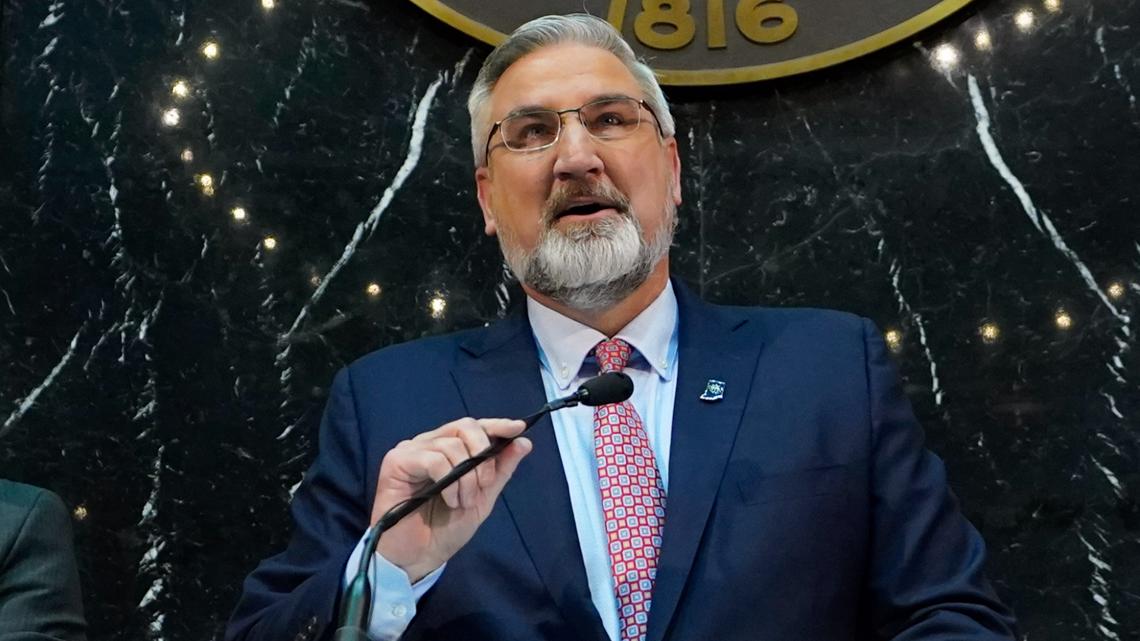Governor Holcomb signed the order Thursday to end the state’s COVID-19 emergency after nearly two years.
INDIANAPOLIS — Friday was the first day since March 2020 that Indiana was no longer under a public health emergency.
Governor Eric Holcomb signed the executive order on Thursday after lawmakers approved House Bill 1001, which included steps Holcomb said were necessary to protect “enhanced federal funding.”
Part of the bill gave him the green light to lift the declaration nearly two years later.
At the same time, the state is seeing a drop in cases and a return to normal.
On Friday, Indianapolis welcomed college basketball fans back downtown to kick off a busy month of March.
This weekend, Gainbridge Fieldhouse is hosting the Big Ten Women’s Basketball Tournament. Compared to last year, fans said they felt safer, but are still being cautious.
“It seems like things are getting back to normal, which is great, but I want to make sure that we are precautionary because we never want to go back. So let’s keep moving it forward and keeping the number down,” said Sudan Ellington.
Unlike last March, masks were no longer required in the venue.
“So much better without masks,” said Erin Hillary, who came to watch her daughter play for Indiana.
Health experts said these loosened rules and new guidelines are a sign that the country is starting to learn how to live with the virus, like other seasonal diseases.
“I think it’s nice to know that things are under control, that we can right now stop this health emergency and kind of try to normalize it and deal with it like we do other diseases, like influenza,” said Dr. Christopher Belcher, the medical director of infection prevention at Ascension St. Vincent Indianapolis.
Belcher also said the drop in cases is finally catching up with hospitals.
On Friday, Ascension St. Vincent was treating 28 COVID-19 patients, which is a 74% drop compared to seven weeks ago.
He said this is giving many health care workers a moment to breathe as they catch up on other delayed surgeries and appointments.
“I do hope to see some of the people who were just so tired and burnt out coming back to us,” he said.
Two years into the pandemic, Belcher said the virus is much more controllable now.
“It’s not over. The virus isn’t gone. It continues to circulate, but things are much more manageable,” he said. “We know how to do it now. We are much better at it.”
Right now, COVID-19 cases in Indiana are the lowest they’ve been since last summer.
At one point in January, the state was reporting more than 18,000 cases, now that number is less than 500.








